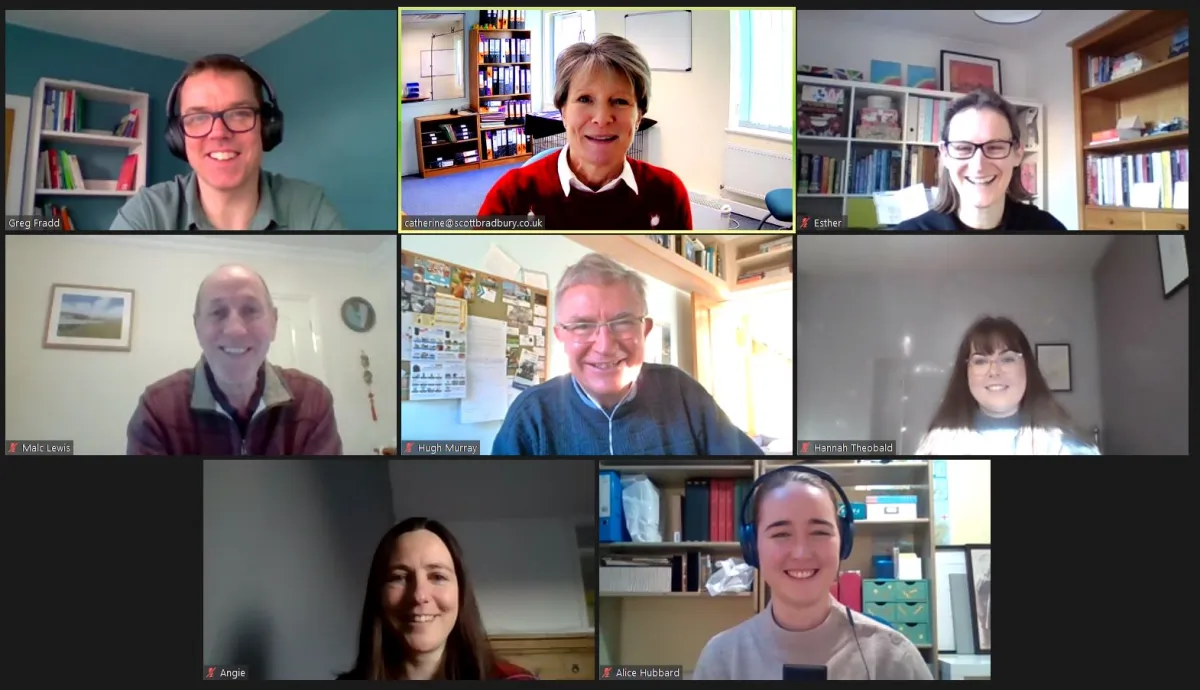
Our word of the year for 2020 was ‘human’. In this short article we explore how the essential human connection required for effective learning need not be lost when we learn online in 2021.
2-minute read
Our word of the year for 2020 was ‘human’. For good and for ill, we saw human beings displaying a full range of behaviours. We saw people at their best. We saw them at their worst. We witnessed wonderful, uplifting community behaviour and a genuine caring for others at work as well as at home. And we also witnessed poor, selfish behaviour. But at its heart, all our behaviour was human.
The feeling that we need to learn face-to-face is well documented. We’re now all familiar with the urgent call for children to be taught in classrooms and not online. And I’m aware of how in the ‘old days’ face-to-face tutorials were often regarded as the most valued aspect of online degree courses. As we face the challenges presented by Covid-19, in-house trainers long to be back in the classroom interacting face-to-face with their workshop participants.
At Scott Bradbury, we’re about people, performance and productivity. And thinking about last year in the context of corporate learning, it’s useful to reflect on the fact that people learn best from people. This is the key reason we always use real people and not animated cartoons in our videos. Video is a brilliant medium for illustrating human behaviour. So why have anything other than a human being demonstrate the skill or behaviour you want to portray? Learners need to relate to what they see; they need a human connection, so they internalise the learning and make it real.
Back in the summer of 2020, after coming off yet another Zoom call with a house-bound customer, my colleague Alice Hubbard memorably described how using video conferencing was ‘more human, less corporate.’ For the first time, we were seeing our prospects and customers as ‘whole people’ in the round, observing them in the context of their domestic life as well as their working life. And naturally, we responded in kind, sharing more of ourselves as human beings, and not simply as providers of learning resources. This human element of our conversations struck a chord with me.
But for all the undoubted and longed-for upsides of the ‘togetherness’ of classroom learning, the human connection required for effective learning need not be lost when we go online. And that is particularly true in the case of adult organisational learning. As Alice found, replacing telephone calls with Zoom or Teams ‘meetings’ leads to an understanding which is much more profound. Relating to one another as human beings, especially in the context of the threat of the pandemic, leads to a much stronger connection. Even when we relate to each other via a screen.
To make learning effective online, we need to take the very best of what the classroom offers and augment it in the online environment. That way we reap the rewards of an even better experience. A greater tolerance when things go wrong, which they inevitably do on occasion, is one aspect of improved cooperation and communication. A better appreciation of individuals’ needs and their personal circumstances is another. And learning to be creative and mutually supportive is yet another. We’ve learned to collaborate better and to listen more effectively to one another. And above all, when we’re working and learning in isolation, we’ve learned to appreciate each other even more. So that we’re not really alone.
Human beings are remarkably adaptable. And we’ve made massive strides in the last year. We’re now regularly achieving new ways of learning that previously would have seemed some way off into the future.
And at the heart of all this change are people - other human beings who feel apprehension and excitement just like everyone else. Of course, technology has been pivotal in making modern online learning possible, but it’s the human dimension that makes it effective and worthwhile. Learning on your own online is hard, often sabotaged by distraction and demotivation. But learning with others makes it so much more achievable and successful. It becomes something altogether much more reaffirming and extraordinary.
So, as we start 2021, our small team at Scott Bradbury is here to help you at a human level first and foremost. We want to help you engage your people in effective learning, whether that’s online in virtual workshops about accuracy, concentration and attention-to-detail skills, or with video learning that illustrates people skills and behaviour in a range of leadership, management and communication scenarios. Our business starts with you, as a human being. You’ll find that we’re human too.
Catherine de Salvo
Managing Director, Scott Bradbury